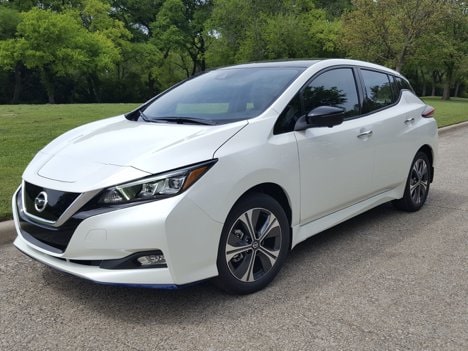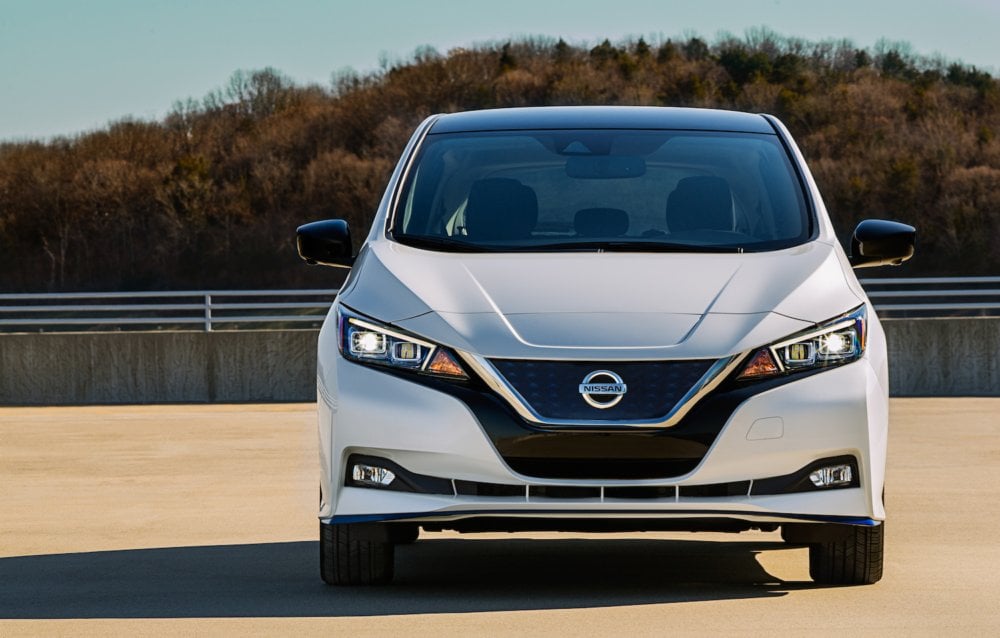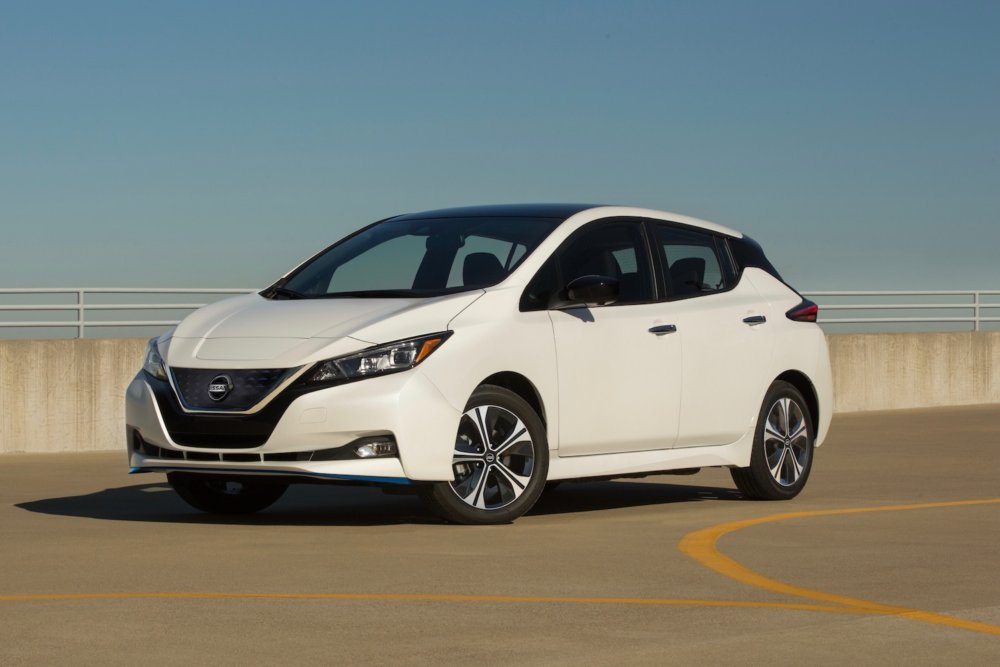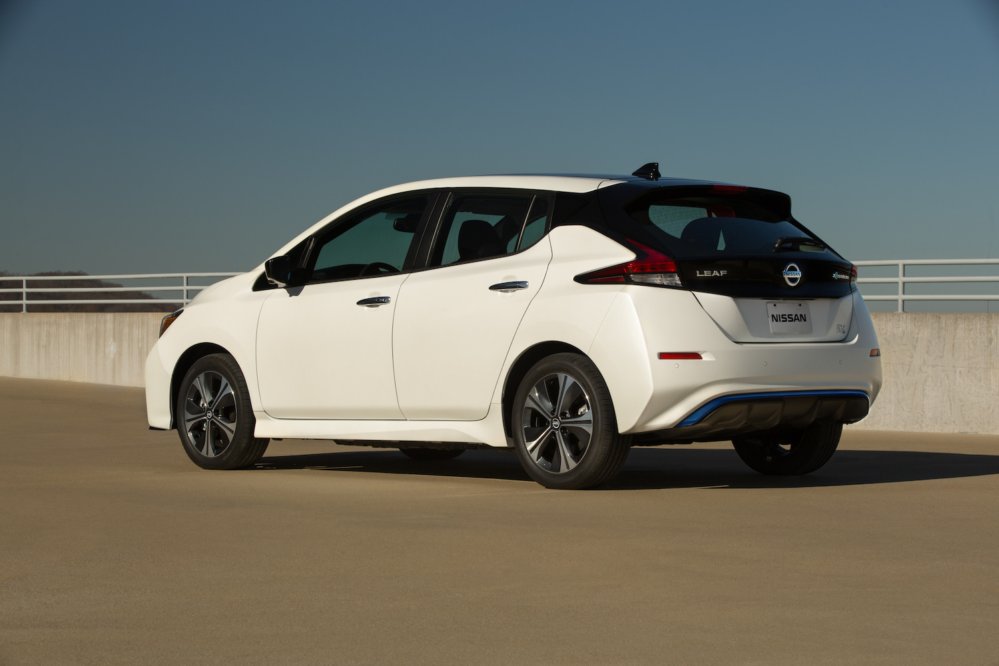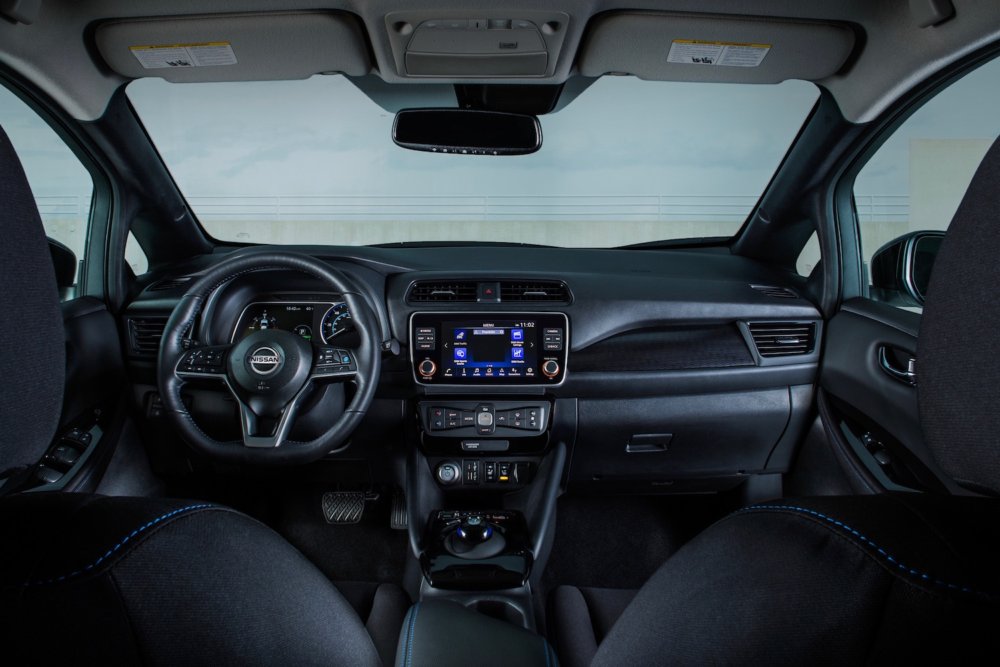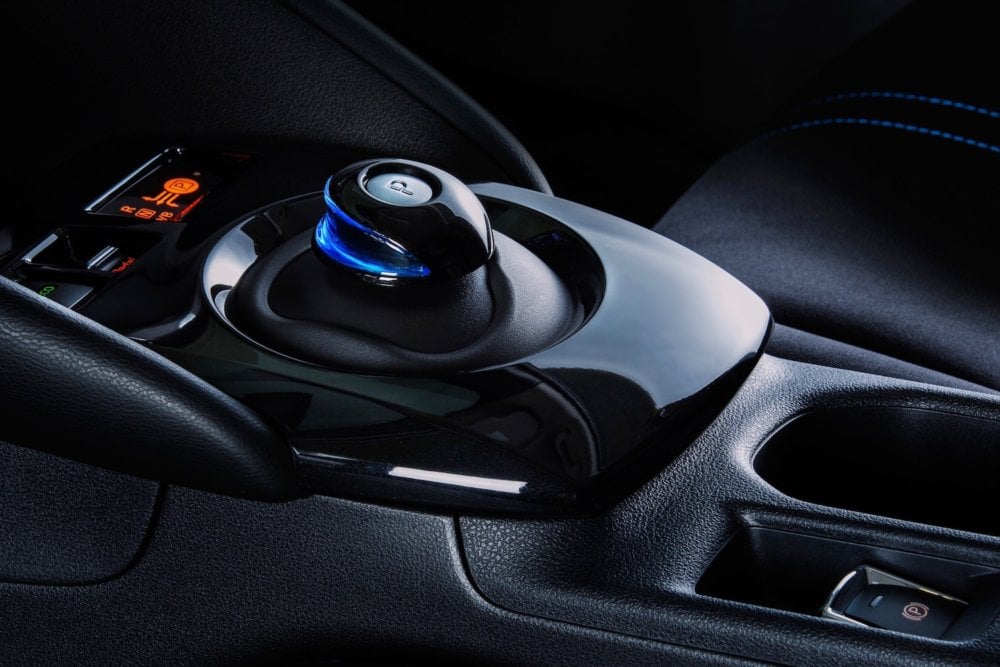Computer-dating can’t seem to bring a spark to my life.
So, for now, I’ll rely on the 2020 Nissan Leaf Plus, an agreeable little electric sedan that brings 62 kWh of lithium-ion spark to consumers.
Sure beats Maggie in Mesquite who favors pork-pie hats and spirited games of bingo.
I find the Leaf kind of interesting because it has been available in the U.S. for a decade and at one time before the Chevrolet Bolt, Kia Niro and Hyundai Ioniq, billed itself as the affordable electric.
Affordable these days is a highly relative concept: My loaded Leaf Plus arrived with a $46,000 window-sticker before any applicable tax credits.
As you may recall, the original Leaf looked like a large bar of soap with huge headlamps stuck on it.
Although the heavily restyled 2020 Leaf is easier on the eyes, it still struggles in the marketplace, with sales down 16 percent last year.
The Plus aims to push those numbers up with an improved range of up to 215 miles (up from 150 miles on standard Leafs), a solid suite of safety features and a top build-quality rating from J.D. Power.
The white Leaf I had greeted the world with a smallish black grille framed by Nissan’s signature horse-collar trim and sweeping, more graceful headlamps.
Meanwhile, a large, sloping windshield provided excellent visibility, while multiple lines in the sides and a frenetic rear roof-pillar added some, uh, character and definition to the thick-bodied sedan.
Smallish 215/50 tires on 17-inch alloy wheels, though, seemed to emphasize the Leaf’s thick body.
But the busy, slightly disjointed exterior of the Leaf contrasted with the smooth silence provided by the car’s optional 214-horsepower synchronous electric motor.
Push the power button on the Leaf and the electrons start flowing with all the drama of firing up your electric toothbrush.
As you probably know, electric cars deliver their power instantly, which tends to make them feel really quick – and they often are.
Although the Leaf Plus with its optional 70-horsepower upgrade wasn’t quite as lively as I had expected, it was still much swifter than the average compact car, speeding peacefully to 60 mph in an estimated 7 seconds.
And with no engine or drivetrain noises to color drivers’ perceptions, the only sound emitted by the 3,500-pound car tended to be tire clomp.
Clearly, however, battery-range is an overriding concern with electrics, and though I didn’t attempt any long drives in the Leaf, it did reasonably well around town.
Like most electrics, the Leaf rarely achieved the range promised by its gauge, typically burning through 20 miles of range in 15 or 16 miles of driving – and I wasn’t using the climate-control system.
Technically, the Leaf should get the equivalent of 114 MPGe in town.
I also didn’t attempt to recharge the car with the 120-volt electrical plug at Chateau Box, which will get you a whopping five miles of range per hour of recharge – or about 40 hours for a full recharge.
An upgrade to 240 volts can cut that to a full recharge in four to eight hours.
Moreover, the Leaf is pretty pleasant to drive, with quick steering and crisp handling, as well as braking that can be largely achieved by lifting your foot off the accelerator because of regenerative braking.
It also felt smooth and solid on most streets, though the aging concrete in my old town induced some fidget.
However, the black interior in my Leaf, while attractive enough, didn’t do much to justify the car’s lofty list price.
A deep upper dash in hard plastic, for example, rolled down gently to a nicely shaped mid-dash dominated – sort of – by an 8-inch touchscreen.
While the screen wasn’t all that impressive, it offered navigation, as well as a battery-status check, and Android Auto and Apple CarPlay capabilities.
In addition, Nissan stuffed the Leaf with safety features, including automatic emergency braking with pedestrian detection, rear cross-traffic alert, blind-spot warning and lane-departure warning.
I especially liked the lever for engaging forward and reverse. It was shaped like a hockey puck and moved more smoothly than the shifters on some $100,000 luxury vehicles.
The seats also looked and felt pretty upscale with perforated black centers and lighter trim on the edges of the bolsters.
They provided good leg-room in back, but head-room was a bit limited.
If cost weren’t a consideration, the Leaf might be the best overall sedan in the compact segment.
But can you drive it like a gas-powered car? Can you hop into the Leaf for a day-long, 350-mile drive on back roads to the beach, relying on a network of recharging stations along the way?
I seriously doubt it – and that’s a major hurdle all the electrics will have to clear.
2020 Nissan Leaf Plus
- What I liked most: The Leaf looks and drives mostly like a regular car.
- What I would change: It needs more range to meet most drivers’ needs – especially in sprawling areas like Dallas.
- MSRP: Base price of standard Leaf, $31,600; as equipped, $46,045.
- Official color: Glacier White
- Fuel economy: 114 MPGe in the city, 94 on the highway and 104 MPGe overall with a recharge port in front of the hood.
- Odometer reading when tested: 154 miles.
- Spare tire: None.
- Weight: 3,538 pounds.
- Length-width-height: 176.4 inches long/70.5 inches wide/61.4 inches tall.
- Fuel-tank capacity: 215 miles on full charge.
- Towing capacity: Not applicable.
- 2020 Nissan Leaf in a few words: A decent modern compact that needs a nationwide recharge network to be fully practical.
- Warranty: Three-year, 36,000-mile overall warranty and five-year, 60,000-mile powertrain protection.
- Final assembly location: Smyrna, Tenn.
- Manufacturer’s website: www.nissanusa.com
- Up next: 2021 Kia Seltos EX
